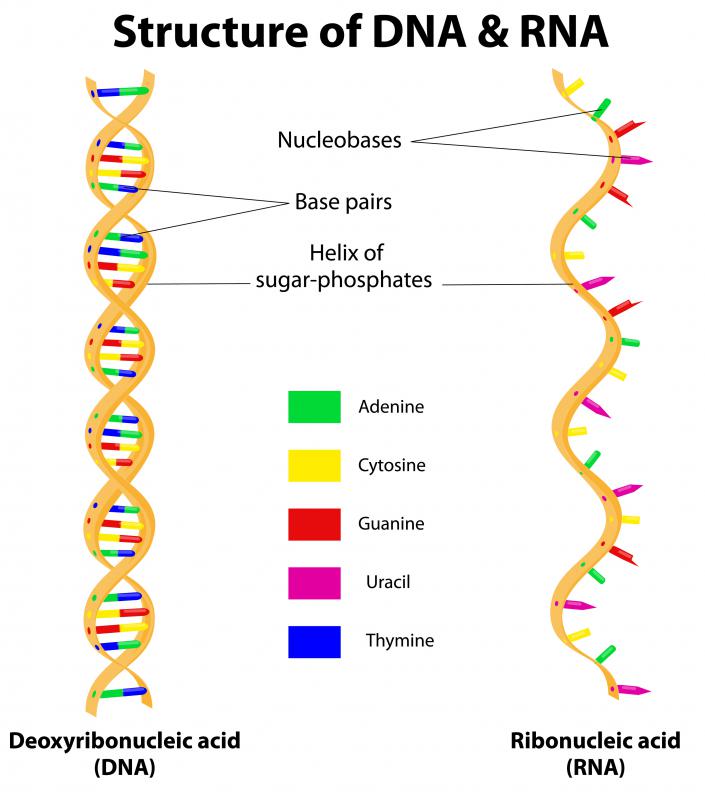At WiseGEEK, we're committed to delivering accurate, trustworthy information. Our expert-authored content is rigorously fact-checked and sourced from credible authorities. Discover how we uphold the highest standards in providing you with reliable knowledge.
What are Biochemistry and Biophysics?
Biochemistry and biophysics are disciplines in the field of science which relate to the study of organisms. Specifically, biochemistry and biophysics study the biological structure and systems of living beings, both large and small. Each organism is comprised of a number of different parts, with its own function and organizational form. Most notable is the fact that biochemistry and biophysics relate to every living thing on the planet.
Biochemistry itself focuses heavily on the chemical processes within the organisms. The science deals with cellular components and biomolecules including carbohydrates, lipids, nucleic acids and proteins. Each of these molecules within the cell are complex and feature both large forms, called polymers, and subunits, known as monomers. The science studies the chemical reactions present within the cell and how the biomolecules interact. One of the most notable examples are enzyme-catalyzed reactions, the process of increasing activity within the cell.

Biophysics deals with a variety of other interactions in the living world. It employs the different physical science theories in biological systems from the small molecular scale, up to the entire organism and ecosystem. The main objective of the science is to address concerns over biological questions in a quantitative fashion. Biophysics focuses on the interactions of the cellular systems, such as that of DNA and RNA, as well as what the regulation of those interactions mean. Examples of fields within biophysics are agrophysics, bioengineering, nanotechnology and general biology.

Biochemistry and biophysics use a variety of different tools to conduct the necessary research in the fields. Fluorescent imaging techniques allow scientists to illuminate the various features in organisms and more readily identify the functions. Electron microscopes focus electron particles into an organism to create a magnified image. X-Ray crystallography analyzes the chemical bonds by focusing an x-ray at the crystalline structures in molecules. NMR spectroscopy uses magnetic resonance focused on the nucleus of an atom. Atomic force microscopes are often used as well. These machines enable a scientist to view some of the smallest objects in the cell.

Besides simple visualization to study organisms, biochemists and biophysicists also directly manipulate the processes and systems of biological elements. One tool used to conduct these experiments is an optical tweezer, which uses a laser to exert force over small parts of an organism. By changing the natural features of an organism or the environment, they are able to propose theories and display results. This has increased ramifications on all biological entities due to the fact that all living beings descend from a common ancestry. In this way, biochemistry and biophysics can relate research from one organism to another.
AS FEATURED ON:
AS FEATURED ON:














Discuss this Article
Post your comments